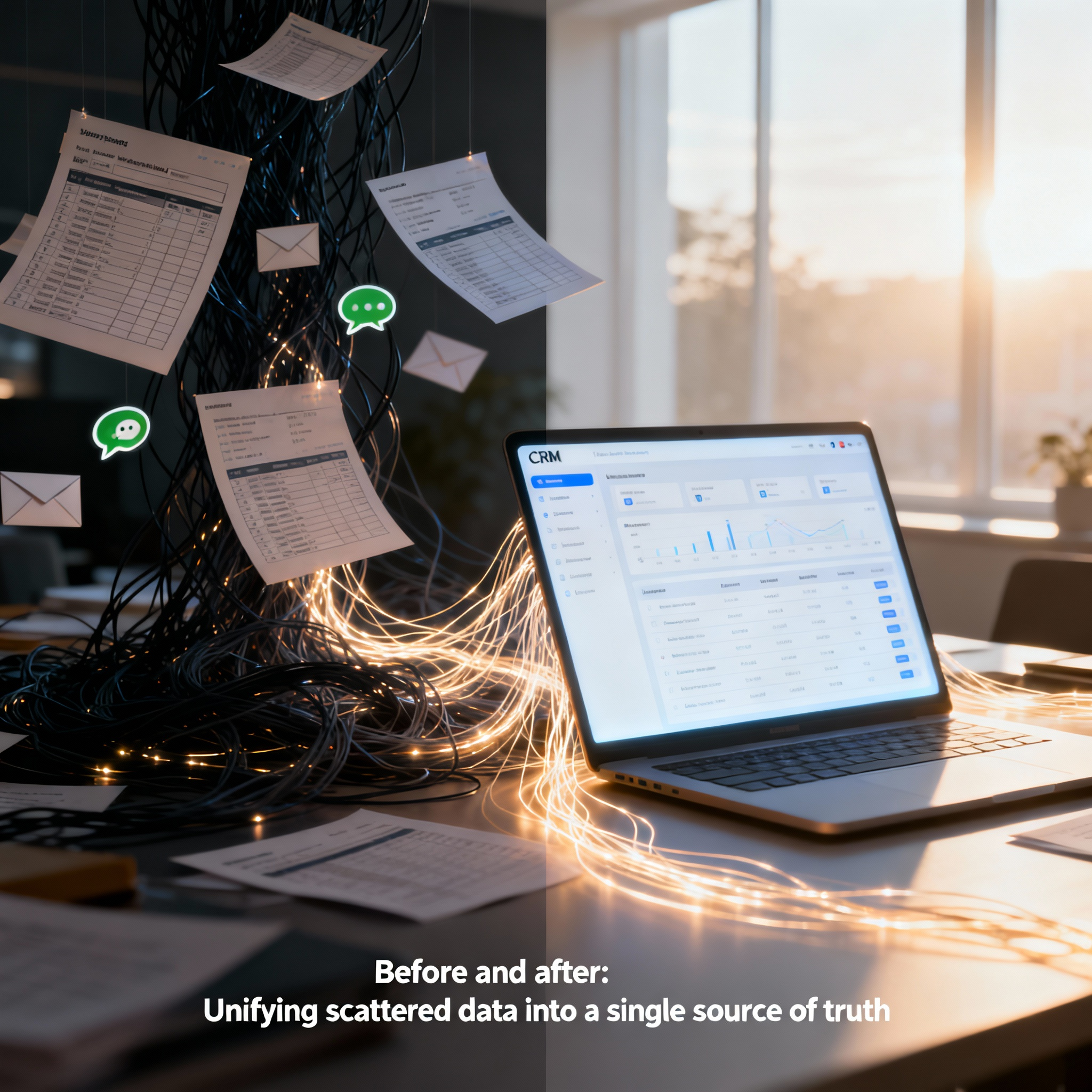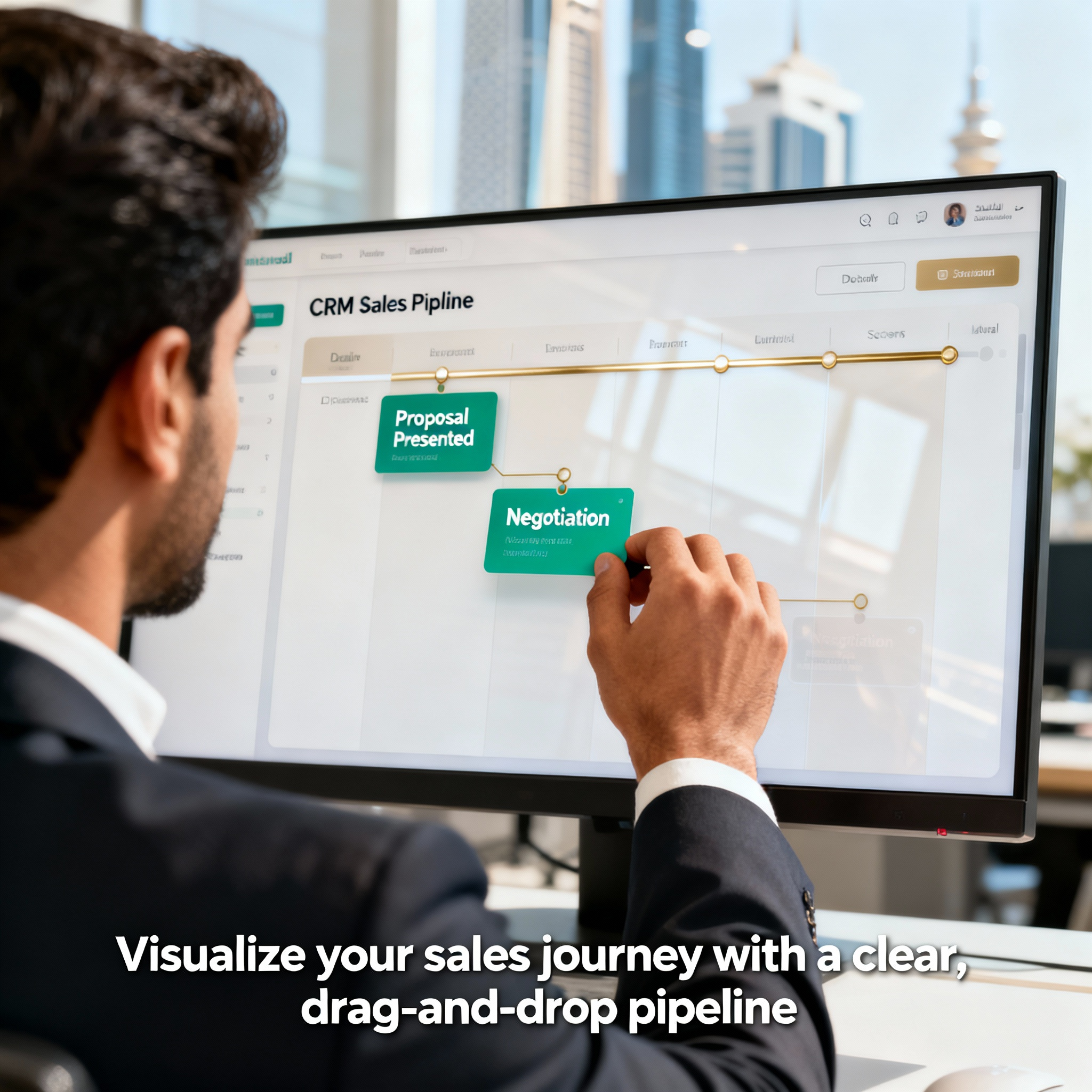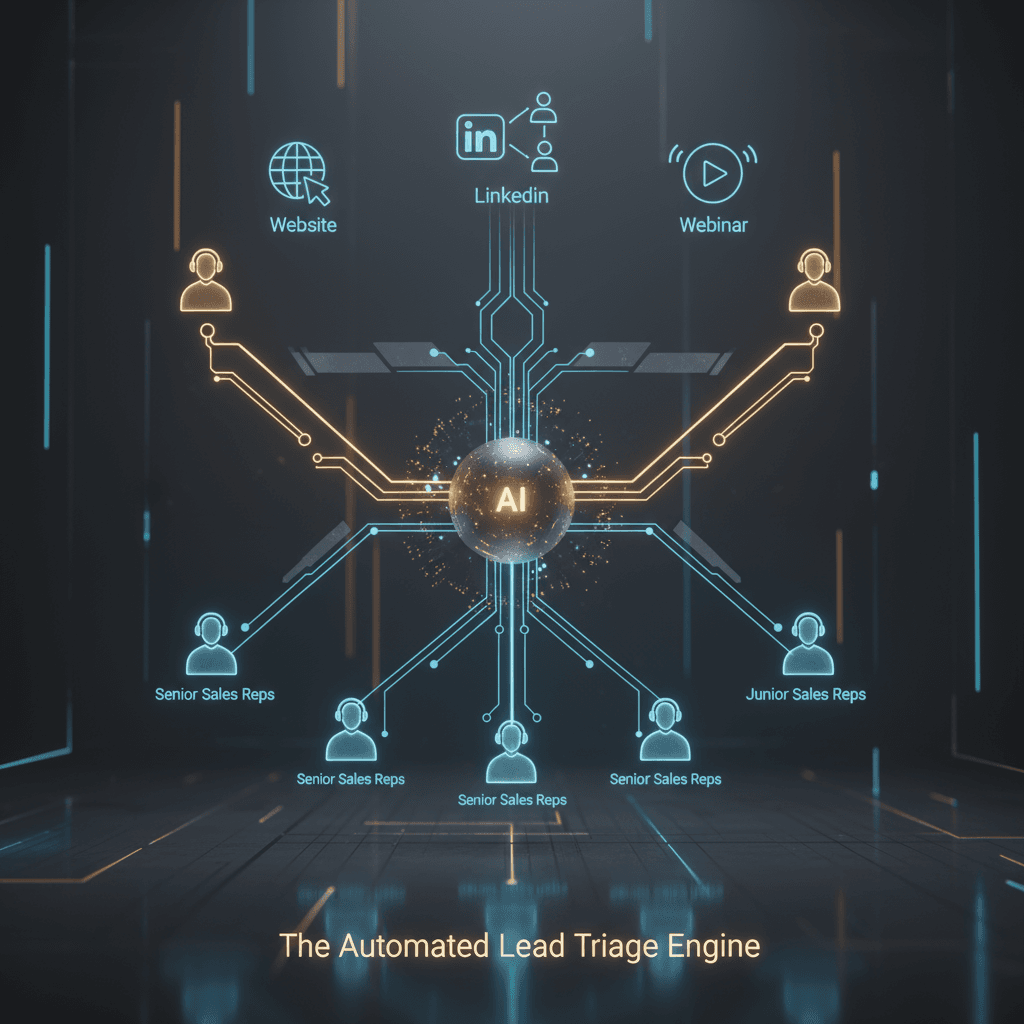Choosing a CRM in Dubai: A Practical Guide for Service Businesses
Are your customer details scattered across spreadsheets, WhatsApp chats, and random notebooks? You know you need a central system, but the process of choosing a Customer Relationship Management (CRM) tool feels overwhelming and expensive. This guide provides a clear, no-nonsense framework to select a CRM that actually saves you time and helps you win more business in the UAE, without the costly distractions.
Key Takeaways
- Focus on Core Jobs First: Before looking at fancy features, confirm the CRM can flawlessly manage contacts, track deals in a pipeline, and log communications.
- Avoid Overspending on "All-in-One" Platforms: Start with a tool that solves your immediate sales and contact management problems. You can integrate other tools later.
- Prioritize Integration Capabilities: Your CRM must connect to the tools you already use daily, like email, calendars, and especially WhatsApp for the Dubai market.
- Local Compliance is Non-Negotiable: Ensure your CRM choice complies with UAE data residency and privacy laws (e.g., PDPL) to avoid future legal headaches.
- A Bad CRM is Worse Than a Spreadsheet: Choosing the wrong system creates more work. A good CRM should feel like it removes friction, not adds it.

The 5-Step Framework for Choosing the Right CRM
Picking a CRM isn't about features; it's about mapping a tool to your business process. Follow these five steps to make a confident decision.
1. Audit Your Current Sales and Client Process
Before you look at any software, map out your reality. Don't invent a process you *wish* you had. Document the one you have now.
- Lead Intake: Where do leads come from? (Website form, WhatsApp, referral?) Who is the first person to respond?
- Qualification & Follow-up: How do you decide if a lead is a good fit? How many times do you follow up, and on what channels?
- Proposal & Closing: What are the exact steps to send a proposal, negotiate, and get a signature?
- Handoff & Onboarding: Once a deal is won, how does the client information get to the delivery or operations team?
This audit will reveal your biggest bottlenecks. For example, you might find that leads from your website take 24 hours to get a response. That's a concrete problem a CRM can help fix.
2. Define Your 3-5 "Must-Have" Features
Based on your audit, list the non-negotiable jobs the CRM must do. Ignore everything else for now. Your list will likely look something like this:
- Visual Sales Pipeline: A clear, drag-and-drop view of deals moving from "New Lead" to "Won."
- Contact Management: A single view of every client with all their contact details, notes, and communication history.
- Activity Logging: The ability for you and your team to easily log calls, emails, and meetings with a contact.
- Task Management: Automatically or manually create follow-up tasks (e.g., "Call Ahmed on Tuesday") tied to a specific deal or contact.
- Basic Reporting: A simple dashboard showing deals won/lost, pipeline value, and team activity.
3. Shortlist 3 Vendors and Run a Real-World Test
Don't demo ten different CRMs. Based on your must-haves, shortlist three that seem like a good fit. Many offer free trials. Use the trial period to run a real-world scenario.
Take 2-3 of your most recent clients and manually add them to each CRM. Can you easily create the contact, build the deal, log the emails you sent, and move it to "Won"? The one that feels the most intuitive and requires the fewest clicks is often the winner.

4. Verify UAE-Specific Compliance and Support
This is critical for operating in Dubai and the wider UAE. Ask vendors these direct questions:
- Data Residency: Can our data be hosted within the UAE? If not, where is it hosted, and what are the compliance implications?
- Local Support: Do you offer support during UAE business hours (GST)?
- Currency & Formatting: Does the platform handle AED currency and local address formats without workarounds?
5. Plan for Integration and Growth
The perfect CRM should work with the tools you already rely on. Check for native integrations with your email provider (Google Workspace/Outlook 365), calendar, and any proposal or accounting software you use. A strong integration ecosystem means you can build an AI workforce on top of a solid data foundation, automating tasks and making your team more efficient.
A great example of this in action is a service business that saw a +35% increase in qualified sales meetings within 60 days of implementing a CRM correctly. They did this by identifying that their speed-to-lead was slow. The new CRM, integrated with their website, created a task for a salesperson the moment a lead came in, cutting response time from hours to minutes.
Frequently Asked Questions (FAQ)
1. What’s the biggest difference between free and paid CRMs?
Free CRMs are excellent for getting started with basic contact management. However, they usually limit the number of users, contacts, or features like workflow automation and advanced reporting. Paid CRMs are necessary once you need to customize your pipeline, automate follow-ups, and get deeper insights into your sales performance.
2. Do I really need a CRM with "AI features"?
For most small businesses, core CRM functionality is far more important than hyped AI features. Focus on getting the basics right first. True value comes from using AI to automate processes *connected* to your CRM, not from a generic "AI assistant" inside it. Learn more about how to build a practical AI workforce here.
3. How important is a mobile app for a CRM?
In Dubai, it's essential. Your team is likely meeting clients across the city. A good mobile app lets them update deal stages, log meeting notes, and look up client history on the go, ensuring the CRM stays up-to-date and useful.
4. How long does it take to implement a CRM?
For a small business, a basic implementation can be done in a week. This involves importing contacts, setting up your sales pipeline, and training the team. The key is to start simple. Don't try to build a perfect, complex system on day one.
5. Can most CRMs integrate with WhatsApp Business?
This is a crucial question for the UAE market. Many CRMs now offer direct or third-party integrations with WhatsApp Business, allowing you to log chats and manage communication from a central place. Always verify the quality of this specific integration during your trial.
6. What is the most common mistake when adopting a CRM?
The most common mistake is poor user adoption. If the team finds the CRM difficult to use or doesn't see its value, they will revert to their old spreadsheet habits. The solution is to involve them in the selection process and provide clear training on how the CRM makes their job easier.
Your Next Steps to a Better Workflow
Choosing a CRM is a major step towards scaling your business. Done right, it provides the visibility you need to grow predictably.
- Block 2 Hours This Week: Use this time to audit your current process as outlined in Step 1. You can't fix what you can't see.
- Define Your 3 Must-Haves: Write down the three most critical jobs the CRM must perform to solve your biggest bottlenecks.
- Schedule Two Demos: Pick two promising vendors and schedule demos. Ask them to show you how their system would handle *your* specific process.
Getting this right gives you a powerful foundation—not just for sales, but for building a more efficient, automated, and intelligent business. For more insights, visit our company blog.



